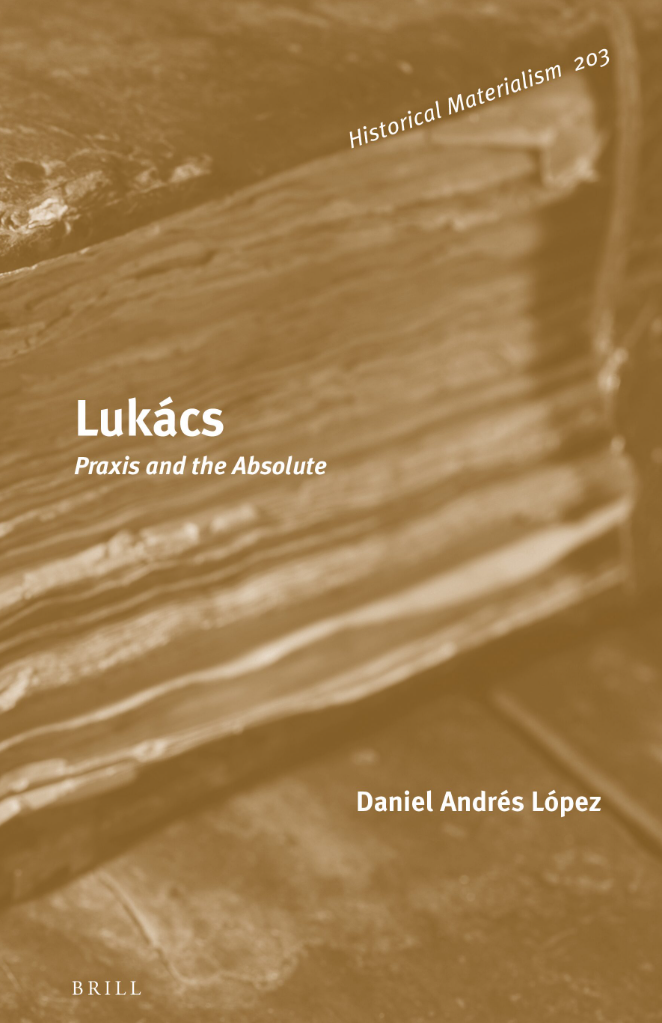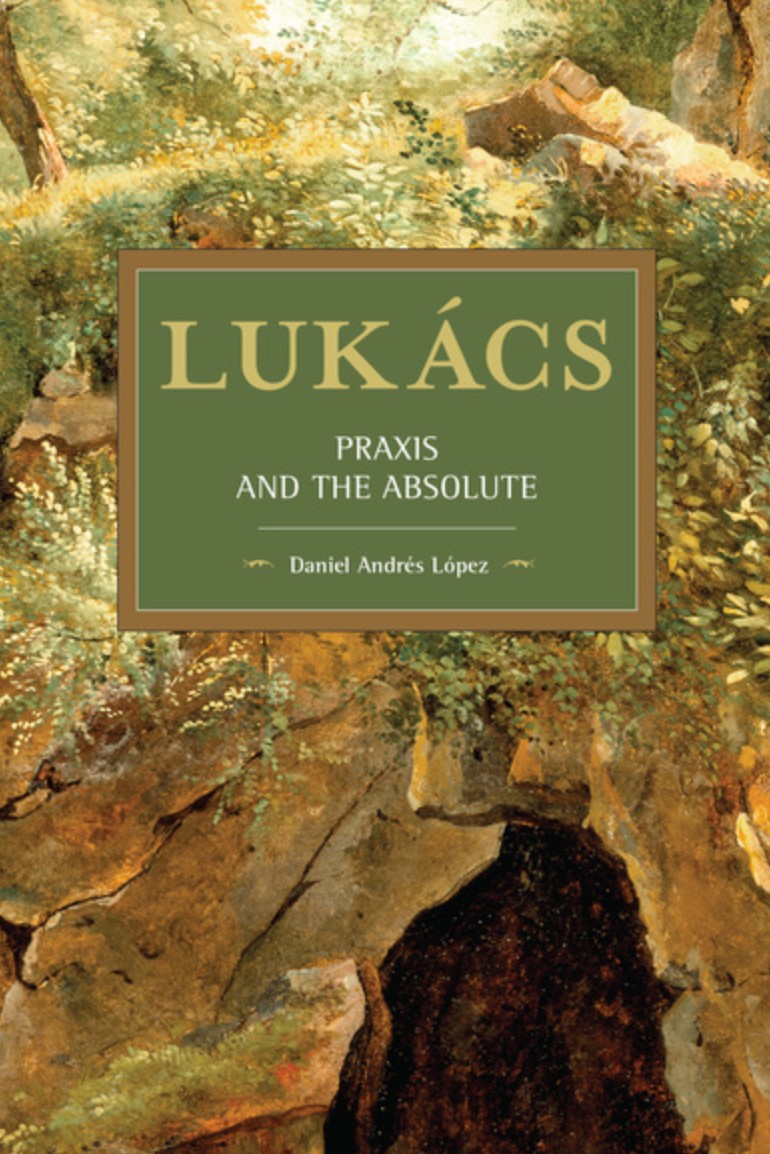Daniel Andrés López
Georg Lukács’s philosophy of praxis, penned between 1918 and 1928, remains a revolutionary and apocryphal presence within Marxism. His History and Class Consciousness has inspired a century of rapture and reprobation, perhaps, as Gillian Rose suggested, because of its ‘invitation to hermeneutic anarchy’.
In Lukács: Praxis and the Absolute, Daniel Andrés López radicalises Lukács’s famous return to Hegel by reassembling his 1920s philosophy as a conceptual-historical totality. This speculative reading defends Lukács while proposing an unprecedented, immanent critique. While Lukács’s concept of praxis approaches the shape of Hegel’s Absolute, it tragically fails to bear its weight. However, as López argues, Lukács’s failure was productive: it raises crucial political, methodological and philosophical questions for Marxism, offering to redeem a lost century.
Biographical Note
Readership
All readers (academic, post-graduate and educated laymen) interested in critical theory, Marxist, Hegelian and political philosophy. All university and public libraries that maintain collections including the work of Georg Lukács.
Table of Contents
Acknowledgements
Introduction
1 Prophet of Praxis: Lukács between 1918 and 1929
2 Lukács and Marxian Philosophy of Praxis
3 Reading Lukács Speculatively
Part One – Towards a Theory of Praxis
Introduction to Part One
1 – From Immediacy to Commodity Fetishism
1 Immediacy and Method
2 Form and content, Quantity and Quality, the Commodity
2 – Reification and Totality
1 Subjective and Objective Reification; Society as Second Nature
2 The Controversy over Reification
3 Fragmentation and Crisis
3 – The Standpoint of the Proletariat
1 The Principle of Labour and the Proletariat as Subject-Object of History
2 In defence of the standpoint of the proletariat
3 The self-consciousness of the commodity
Conclusion to Part One
Part Two – From Theory to Praxis
4 – Theory In Itself and for the Proletariat
1 The Contemplative Stance
2 The Ethical Idea of Praxis
3 The Critique of Naturalism
5 – The Critique of Ideology
1 The Standpoint of the Bourgeoisie
2 Sectarian, Reformism and Vulgar Marxism
3 The Actuality of Revolution
6 – The Party
1 The Party as Bearer of Imputed Consciousness
2 The Controversy over Lukács’s Leninism
3 Party and Class
7 – Praxis
1 The Concept of the Proletariat in and for Itself
2 The Actuality of Praxis
Part Three – Praxis and Philosophy
Introduction to Part Three
8 – Lukács’s Critique of Philosophy
1 The Antinomies of Bourgeois Philosophy
2 Lukács on Hegel and the Absolute
3 Once More on Hegel, via the Young Hegelians
9 – Praxis, the Absolute and Philosophy
1 The Philosophical Critiques of Lukács
1.1 Endless Mediation: Andrew Feenberg
1.2 Liberal Empiricism: Tom Rockmore
1.3 Shallow Immanent Critique: Richard Kilminster
1.4 Adorno as Alternative to Lukács: Timothy Hall (with Support from Gillian Rose)
2 The Critique from History
2.1 Praxis as Mediation: Trotsky and the New Left
2.2 Praxis as Logic: The Elder Lukács
2.3 Praxis as Genesis: The Baroque Melancholia of Benjamin
2.4 Praxis as Tragic Theology
3 The Critique from Philosophy
3.1 The Occluded Political Truth of Praxis
3.2 With what Should Philosophy of Praxis End?
Conclusion – Nihilism or the Virtuous Republic
Bibliography
Index


